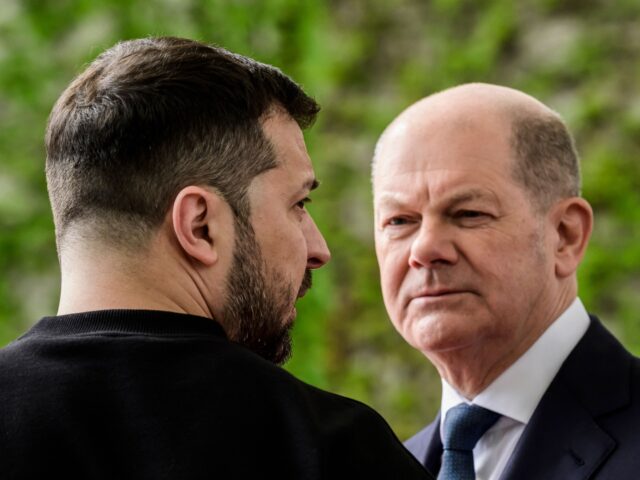At the end of the meeting of G7 nations in Japan, German Chancellor Olaf Scholz said on Sunday that Ukraine currently does not meet the requirements to join the NATO alliance.
The expansion of the American-led NATO alliance into Ukraine does not seem to be on the cards any time soon, with Chancellor Olaf Scholz downplaying the idea after meeting with President Volodymyr Zelensky in Hiroshima, Japan over the weekend.
While the trip was successful for the Ukrainian leader in terms of securing additional military aid commitments — with President Joe Biden committing to send another $375 million in American tax dollars to the war zone — as well as getting the go-ahead from Washington for Western allies to supply American-made F-16 fighter jets, it does not appear that Zelensky has come any closer to his long-stated goal of joining NATO — a move that is considered a “red line” for the Kremlin.
In an interview with Die Welt on Sunday, German Chancellor Olaf Scholz said of the current state of play: “Now it’s about supporting Ukraine, defending its country. For the future, there will also be talk about security guarantees, that is clear. These security guarantees include the question of how strongly we will equip Ukraine with weapons in the future. After the war, Ukraine will be equipped with weapons of Western production.
“It is also clear that we then have to discuss which security guarantees can be given in a post-war situation. But we are far from there yet. Now we are concentrating on what is coming up.”
When pressed on whether he would support Ukraine joining the Western military alliance — which would mandate all other member states to go to war on behalf of Ukraine if it were attacked — Scholz said that “NATO’s criteria include a whole series of conditions that Ukraine cannot currently meet.”
In 1997, the American State Department laid out a list of five “minimum requirements” for NATO membership candidates, which included “all of Europe’s emerging democracies that share the alliance’s values and are ready to meet the obligations of membership.”
The requirements demand that a prospective candidate upholds democracy, including “tolerating diversity”, is “showing progress” towards a developing a market economy, has a military under “firm civilian control”, is a “good neighbour” and respects the sovereignty of other nations, and finally is “working toward compatibility with NATO forces”.
The State Department said that such criteria did not constitute a firm “checklist”, saying that the “key determinant for any invitation to new members is whether their admission to NATO will strengthen the alliance and further the basic objective of NATO enlargement, which is to increase security and stability across Europe.”
It is unclear which of the requirements Chancellor Scholz felt that Ukraine has yet to meet. However, even if Ukraine theoretically fulfilled all of them, the country still faces an uphill battle in joining NATO, given that acesssion is dependent upon the unanimous support from all member states.
While many member states would likely fall in line should America push for Ukrainian membership, at present it is doubtful that Hungary, for instance, would follow suit. Budapest has long had sour relations with Kyiv, principally over the poor treatment of approximately 150,000 ethnic Hungarians living in the Transcarpathia region who were cut off from the rest of Hungary following the Treaty of Trianon in the wake of the First World War that saw Hungary’s traditional territory shrink by nearly two-thirds.
Relations have remained tense between the two neighbouring states following the Russian invasion, with Hungarian Prime Minister Viktor Orbán being one of the few Western leaders expressing desire to end the conflict quickly, even if this it at a cost to Ukraine.
The situation further deteriorated last week, with Budapest saying that it would block another package of EU military aid to Ukraine following reports which alleged that President Volodymyr Zelensky’s government had made plans to blow up the Druzhba oil pipeline that connects Russia to Hungary, which Foreign Minister Peter Szijjarto described as an assault against the national sovereignty of Hungary.
The foreign minister went on to say therefore that they would block the weapons shipment to Ukraine, which he said is “behaving more and more hostile towards Hungary”.
Follow Kurt Zindulka on Twitter here @KurtZindulka

COMMENTS
Please let us know if you're having issues with commenting.